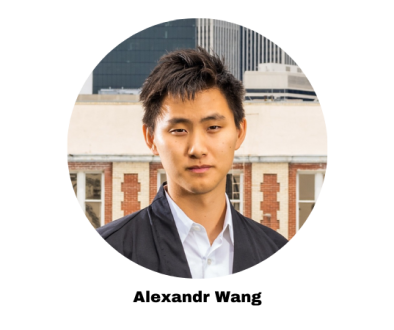Inspiration from Challenging the Status Quo: The Rise of Vlad Tenev and Robinhood
In the dynamic landscape of the financial industry, where traditional practices often dominate, innovation can seem like a daunting endeavor. Yet, disruption can lead to extraordinary change. This narrative rings especially true in the story of Vlad Tenev and Robinhood—a company that has revolutionized how people invest and manage their financial futures. By challenging established norms and questioning the very fabric of finance, Tenev has demonstrated the power of innovation and resilience.
Shaping a New Financial Paradigm
Robinhood was founded in 2013 by Vlad Tenev and Baiju Bhatt with a simple yet radical idea: to democratize finance for all. The platform offers commission-free trading through a user-friendly app, effectively lowering barriers to stock market access. This approach marked a significant departure from the status quo of the financial sector, making investing more accessible to the general public.
At the heart of this transformation was Tenev, who grew up in Bulgaria before moving to the United States. With an academic background in mathematics from Stanford University, and a keen sense for technology and analytics, Tenev’s foundation was robust. His understanding of complex systems became pivotal in designing a platform that simplified stock trading.
Crafting a Vision Beyond Limits
Tenev’s vision for Robinhood stemmed from a fascinating insight: existing brokerage firms were making substantial profits through commission charges, deterring many from participating in stock trading. Inspired by the concept of ‘creative destruction’ as articulated by economist Joseph Schumpeter, Tenev and Bhatt identified an opportunity to disrupt this industry norm by offering a commission-free model. This innovation empowered millions of first-time investors and changed how brokerage firms operated.
A Symphony of Support and Strategy
Behind the success of Robinhood was not just innovation but also a powerful network of support. The founders secured interest and backing from renowned investors, including Andreessen Horowitz and Sequoia Capital. This support not only validated their business model but also provided critical resources that facilitated rapid scaling of their operations. “When you believe in something, the universe conspires to help you,” is a sentiment echoed by respected figures like Paulo Coelho, perfectly capturing the synergy between Robinhood’s mission and the wider investment community’s eagerness to nurture such disruptive startups.
Forging a Competitive Advantage
Robinhood’s competitive edge lies in its simplicity and cost-effectiveness. By offering a sleek, intuitive interface, they appealed to younger, tech-savvy users who grew up immersed in digital ecosystems. This alignment with emerging trends – the rise of smartphone usage and preference for minimalistic designs – afforded them a unique position in the marketplace. Moreover, Robinhood capitalized on a powerful network effect, where the growing user base attracted more users, creating a self-reinforcing cycle of growth.
Provoking Industry-wide Transformation
As Robinhood’s user count soared, so did its influence on the industry. Established brokerage firms, once comfortable with their traditional fee structures, were compelled to reevaluate business models to avoid losing clientele to this innovative newcomer. Thus, Robinhood not only disrupted the market but also set new standards, compelling competitors to innovate and eliminate fees, creating broader benefits for consumers industry-wide.
Tenev’s approach underscores a vital lesson in modern business: questioning the norm can be a catalyst for monumental change. This aligns with concepts from the notable business strategist Clayton Christensen, who advocated for disruptive innovation as a tool for entities to reinvent themselves in sectors characterized by rigidity.
Aspiring Beyond the Horizon
For Tenev and Robinhood, the journey of innovation continues. Their narrative embodies classic entrepreneurial vigor: see an opportunity where others see boundaries, believe in your vision, and rally resources to turn that vision into reality. It’s a testament to the power of challenging the status quo and striving for progress, encapsulating timeless wisdom akin to Steve Jobs’ belief that ‘the ones who are crazy enough to think they can change the world are the ones who do’.
As business leaders seek inspiration to rethink and reshape their industries, the story of Vlad Tenev and Robinhood serves as a remarkable case study. It illustrates how bold ideas, supported by solid strategy and relentless drive, can disrupt established norms—ultimately carving out pathways for widespread change.

